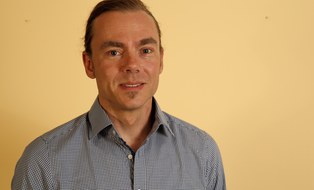iNUX – interactive understanding of groundwater hydrogeology
Supported by
EU
Duration
2022 - 2025
Project description
Groundwater represents more than 97% of the world's available freshwater resources. Groundwater is located in geological structures underground and is therefore invisible and difficult to characterize and manage. Consequently, it is often not adequately considered by authorities, the general public and in education. However, the teaching and learning of hydrogeology and groundwater management at universities and the continuing professional development of professionals are crucial to meet future challenges. For this reason, it is important to use appropriate teaching material to improve the understanding of the complex topic of groundwater among these target groups. The Erasmus+ cooperation project iNUX - Interactive Understanding of Groundwater Hydrogeology addresses the need for digital teaching material. The iNUX project aims to create an interactive and digital learning environment in hydrogeology and groundwater management with European but also global objectives for teachers and students.
The existing experience in teaching relevant groundwater topics from highly regarded European universities will be used to develop interactive and digital teaching material focusing on basic and applied hydrogeology. The teaching material includes basic theory as well as field and laboratory applications in different European environments (Northern, Central and Central Europe). The teaching material includes (1) different types of videos (e.g. field experiments, lab experiments, screencasts to perform calculations and software), (2) interactive Jupyter notebooks that combine explanations with live code (e.g. based on Python), (3) different types of questions and assignments that allow for different assessments to promote self-directed learning of students. All materials are intended to be open source and publicly available. The iNUX activities also include initiatives to form stakeholder groups to pool efforts to develop collaborative digital teaching materials (e.g. question pools) and to link with other activities such as the 'Groundwater project'(https://gw-project.org/). The presentation will include existing examples of digital teaching materials and initial evaluation results to examine the impact on student learning.
Contact
 © Thomas Krause TUD
© Thomas Krause TUD
Dr.-Ing. Thomas Reimann
Senior Scientist / Working group leader modeling
Send encrypted email via the SecureMail portal (for TUD external users only).
Visitors Adress:
Neubau Chemie, Room E58 Bergstr. 66
01069 Dresden
Deutschland
Office hours:
by appointment
